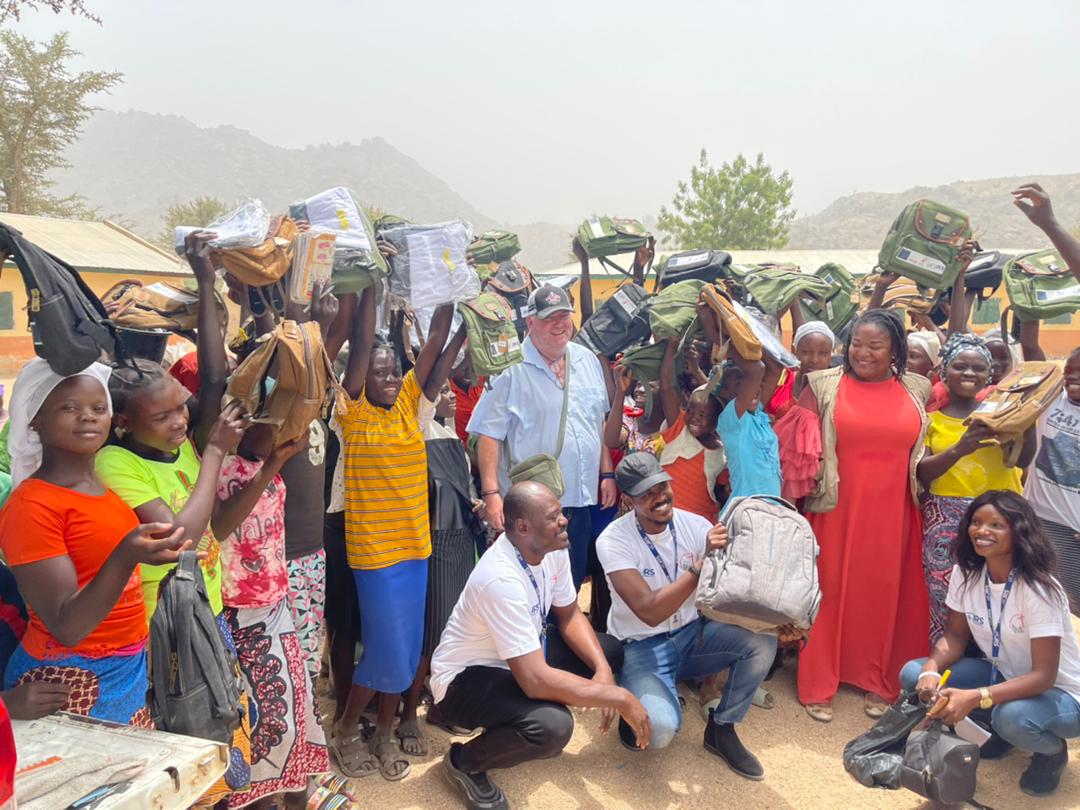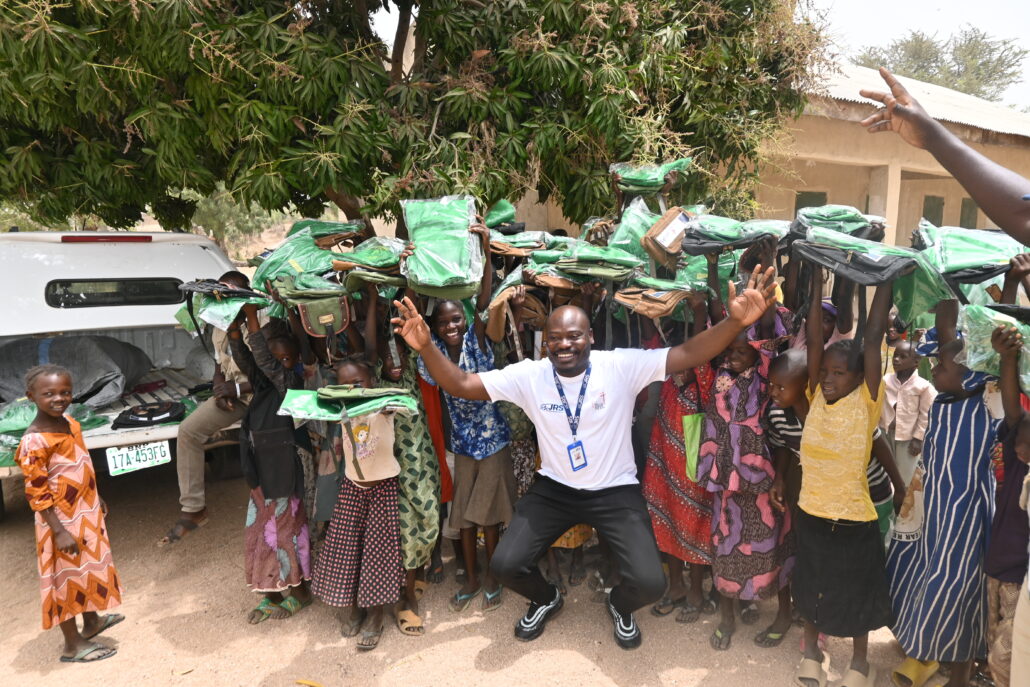
Tim Flynn, our monitoring and evaluation advisor, writes about his recent visit to Nigeria highlighting our work on children’s education, especially focused on girls.
This Thursday, 16th June 2022, as we celebrate the Day of the African Child, Irish Jesuits International (IJI) would like to highlight the work of our partner Jesuit Refugee Service (JRS) in Nigeria. IJI, with funding from Misean Cara, supports a JRS Nigeria project which promotes girl’s education in the north east of Nigeria.
For girls who attempt schooling in these parts, education has come with a price.
I saw first hand the work which the JRS team are carrying out in the schools and with local communities of Adamawa and Borno States. Assessment reports in north-eastern states give female primary school attendance rates of 47.7%, meaning that more than half of the girls of school age are not in school. For girls who attempt schooling in these parts, education has come with a price. The Boko Haram insurgency which has led to the kidnapping of over 100 schoolgirls has expanded into an 11-year crisis era for most parts of the northeastern zones of Nigeria.
 During my visit to Dlaka Primary and Junior Secondary Schools in Adamawa State, in March 2022, I experienced the joy of the girls benefiting under the programme and I had the opportunity to interact with and hear the views of the girls’ parents, teachers, school administration and the local community and government leaders.
During my visit to Dlaka Primary and Junior Secondary Schools in Adamawa State, in March 2022, I experienced the joy of the girls benefiting under the programme and I had the opportunity to interact with and hear the views of the girls’ parents, teachers, school administration and the local community and government leaders.
While on the visit, a tour of ongoing construction and renovations at the school was witnessed – new girl friendly toilets and a renovated classroom block were proudly shown.
Previously the classroom block had been deemed too dangerous for children to learn in and learning was taking place under a tree. 100 of the beneficiary girls – 50 in primary school and 50 girls in Junior secondary school also received education kits on the day. These kits comprised of school bags, uniforms, books and pens.
In total 500 girls who had been out of school had been brought back to school and will be accompanied through the programme for the next 3 years. There will be a focus on ensuring transition of the girls from primary school to junior secondary school and from junior secondary to senior secondary school.
Female teachers have received specific training from the JRS team so as to be better able to support and counsel the girls. In addition a number of other activities were taking place or would be put in place by the project for the girls. These included awareness raising campaigns in the local communities to advocate for the right to education for girls. Girls for Girls (G4G) groups have been established to offer ongoing supports to the 500 girls who are in the programme.
In addition to the education kits, hygiene kits were also procured and distributed. These girls would also continue to receive ongoing counselling as necessary throughout the life of the project. The project focused not just on working with girls and the women teachers in isolation. There has also been identification, selection and training of boys in the schools and men in the community to act as Champions / Advocates for Education of the Girl Child.
One of the major reasons why girls in these rural areas drop from education early is due to poverty. Many of the girls are children of widows and single parents. A further element of the project looked at how to support the mothers in terms of income and livelihood opportunities so that they would have the financial ability to keep their daughters in school. In this respect Village Savings and Loans Associations (VSLA’s) are being established for the mothers of the G4G groups in Borno and Adamawa State.
During the visit the girls and their mothers thanked JRS for their intervention and asked that their thanks could be conveyed to those who supported IJI and this project.
The girls promised to use the advantage well, to work hard and to make their parents, teachers and supporters proud!
For more on Nigeria and other projects, see: here

